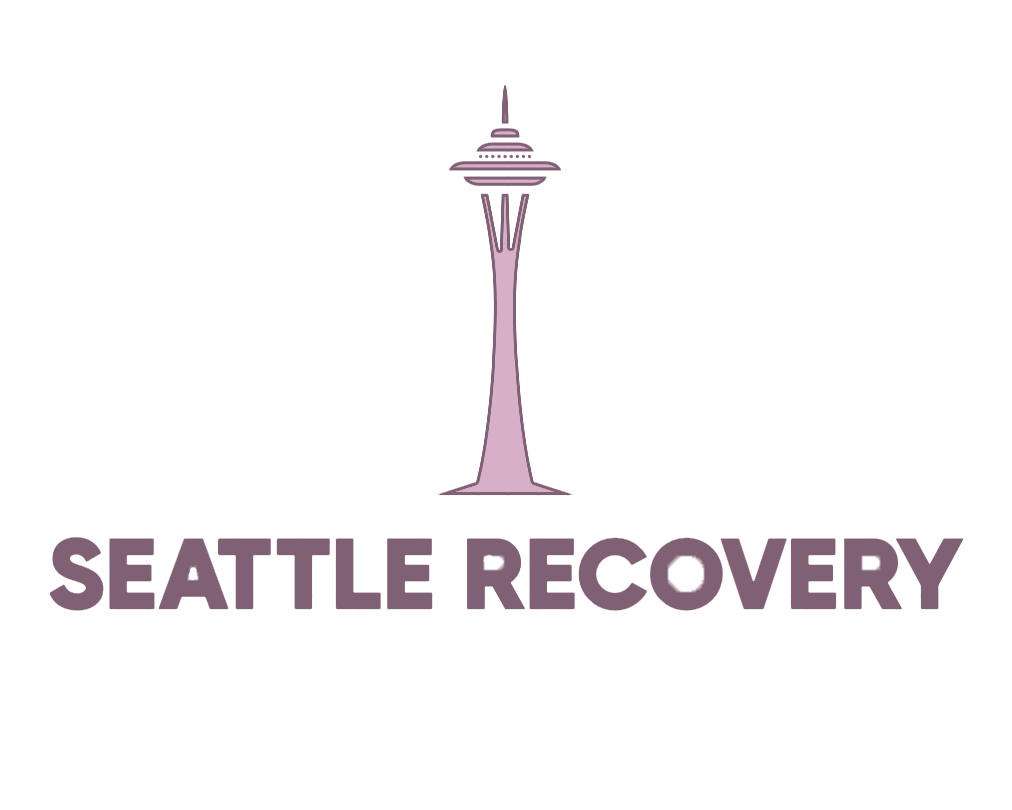
Exploring Seattle Inpatient Drug Rehab
Seattle’s battle against substance use disorders reflects a growing concern mirrored nationwide. In response, Seattle Recovery emerges as a beacon of hope for those embroiled in the throes of addiction. With a comprehensive roster of treatment modalities tailored to individual needs, Seattle Recovery stands out for its innovative approach to inpatient drug rehab.
Services Offered
At its core, Seattle Recovery provides an extensive array of services designed to tackle various facets of addiction and co-occurring mental health disorders. From the initial detoxification process to intensive outpatient programs and transitional living, the organization’s multifaceted approach ensures a continuum of care that is both holistic and personalized.
Understanding the Range of Addictions Treated
- Designer Drug Addiction
- Opioid Addiction
- Stimulants Addiction
- Alcohol Addiction
- Prescription Drugs Addiction
Comprehensive Mental Health Support
Recognizing the intricate link between substance use and mental health, Seattle Recovery places a significant emphasis on treating co-occurring disorders, providing therapy for conditions ranging from depression and anxiety to complex PTSD and personality disorders.
Approach to Treatment
Seattle Recovery’s treatment philosophy is grounded in evidence-based practices. Cognitive Behavioral Therapy (CBT), Dialectical Behavior Therapy (DBT), and Eye Movement Desensitization and Reprocessing (EMDR) form the backbone of its therapeutic offerings. These modalities are complemented by motivational interviewing and relapse prevention strategies, ensuring a robust scaffold for recovery.
Personalization of Care
Each patient’s journey is unique. Seattle Recovery excels in crafting individualized treatment plans that resonate with the specific needs and circumstances of its clientele. This personalized touch not only enhances the effectiveness of treatment but also fosters a deeper connection between patients and their care providers.
Support Beyond Treatment
The path to recovery extends far beyond the confines of direct treatment. Seattle Recovery acknowledges the pivotal role of ongoing support, offering a range of services such as alumni programs, family support initiatives, and mentoring programs. This comprehensive support system ensures that individuals not only achieve sobriety but also sustain it.
Engaging Families in the Recovery Process
Substance use disorders affect more than just the individual; they ripple through families and communities. By involving families in the treatment and recovery process, Seattle Recovery bridges gaps, heals relationships, and builds a solid foundation for long-term recovery.
Unique Treatment Options
In addition to traditional inpatient and outpatient programs, Seattle Recovery offers niche services such as experiential therapy, life skills coaching, and medication management. These offerings cater to the diverse needs and preferences of those seeking help, ensuring that everyone has access to the tools they need for recovery.
Embracing Holistic Health
A distinguishing feature of Seattle Recovery’s approach is its emphasis on the balance of body, mind, and spirit. Nutrition, physical wellness, and spiritual well-being are integral to the recovery process, reflecting a holistic view that recognizes the interconnectedness of all aspects of health.
Leveraging Technology in Recovery
Seattle Recovery is at the forefront of integrating technology into addiction treatment. Virtual outpatient services provide flexibility and accessibility, breaking down barriers to treatment and opening up new avenues for recovery. This innovative use of technology ensures that high-quality care is available to those who need it, whenever they need it.
Virtual Outpatient Services
For individuals who cannot commit to residential treatment due to personal obligations, virtual outpatient services offer a viable alternative. This modality combines the rigor of structured treatment with the convenience of accessing care from anywhere, making recovery more attainable for a broader audience.
Commitment to Excellence
Seattle Recovery’s dedication to quality and professionalism is evident in its fully accredited facilities and highly trained staff. The organization’s commitment to ongoing improvement ensures that its practices remain at the forefront of addiction treatment, providing the best possible care for those on their journey to recovery.
In conclusion, Seattle Recovery represents a comprehensive solution for individuals grappling with substance use and co-occurring mental health disorders. Through a blend of evidence-based treatment, personalized care plans, and an unwavering support system, Seattle Recovery not only facilitates recovery but also empowers individuals to reclaim their lives, one step at a time.

What Treatment Options are Available for Substance Abuse and Mental Health Disorders?
Seattle Recovery offers a rich tapestry of treatment modalities for those grappling with substance use and co-occurring mental health disorders. Imagine a scenario where an individual struggles with opioid addiction and depression. In such cases, we design a dual-focused treatment approach that addresses both issues simultaneously. This might include a combination of medication-assisted treatment (MAT) to manage withdrawal symptoms and cravings, alongside Cognitive Behavioral Therapy (CBT) to address depressive symptoms and behavioral patterns related to addiction. Our goal is to provide a holistic path to recovery that considers all aspects of an individual’s well-being.
Further extending our reach, technology plays a crucial role, especially for those who might be geographically isolated or have commitments that make traditional inpatient treatment challenging. Our virtual outpatient services bridge this gap, ensuring quality care is accessible to all. This approach has opened new avenues for recovery, making it more inclusive and adaptable to modern needs.
How Does a Holistic Approach Enhance Recovery in Substance Abuse Treatment?
Embracing holistic health means looking beyond the physical symptoms of addiction and addressing the mind, body, and spirit. At Seattle Recovery, this approach is woven into every aspect of our treatment programs. For example, consider a patient who finds solace in nature; our experiential therapy sessions in outdoor settings can be profoundly healing for them. This method helps rebuild their connection with themselves and the world around them, providing peace and clarity often lost in addiction.
Nutrition and physical wellness are also pivotal. A well-nourished body supports a healthy mind, enhancing an individual’s capacity to engage with treatment. We often hear from our patients how transformative it feels to reclaim their physical health alongside their mental recovery. It’s a testament to the interconnectedness of our holistic approach and its potential to foster deep, lasting recovery.
How is Technology Transforming Addiction Treatment and Recovery?
Technology in addiction treatment, particularly through virtual outpatient services, is a game-changer. It dismantles barriers to access, such as geographical limitations, mobility issues, or scheduling conflicts. Imagine a single parent, juggling work and childcare, who finds traditional rehab settings out of reach. Virtual services provide that critical lifeline, enabling participation in therapy sessions, peer support groups, and educational workshops from the comfort of home. This flexibility means recovery can weave seamlessly into real life, which is where it ultimately needs to thrive.
The use of technology also extends to treatment methodologies. Tools like apps for mindfulness and meditation, digital platforms for tracking progress, and online resources for education and support empower individuals in their recovery journey. They offer a sense of control and immediacy that is highly valued, especially among younger adults accustomed to digital solutions.
What Strategies are Essential for Relapse Prevention?
Relapse prevention is a critical aspect of sustainable recovery. At Seattle Recovery, this starts with education–understanding the triggers, recognizing the warning signs, and having a concrete plan in place for when challenges arise. We engage our clients in developing these personalized relapse prevention strategies, incorporating techniques like mindfulness to help manage stress and emotional dysregulation, which are common relapse triggers.
Community and support networks also play a vital role. The journey doesn’t end upon leaving treatment; it’s just beginning. That’s why we emphasize the importance of our alumni and mentoring programs, offering a community of peers who understand the challenges and can offer support and encouragement. It’s about building a safety net, knowing that you’re not alone in this.
Lastly, we encourage an ongoing commitment to self-care and wellness. This could mean regular therapy, participation in support groups, or simply engaging in activities that bring joy and fulfillment. It’s these positive reinforcements that build a life worth staying sober for.
What Sets Seattle Recovery Apart in Terms of Quality and Excellence in Care?
Seattle Recovery’s dedication to excellence is reflected in our fully accredited facilities and the professionalism of our staff. Our commitment doesn’t stop at meeting standards; it’s about exceeding them, continually pushing for better outcomes, and refining our approaches based on the latest research and best practices in addiction medicine. For instance, our staff’s ongoing training and education ensure they are equipped with the most current methods and compassionate care practices.
Moreover, our personalized treatment plans are not static. They evolve as our clients grow through their recovery journey, adapting to meet emerging needs and challenges. This dynamic approach, coupled with our holistic view of recovery, sets a foundation for not just overcoming addiction, but thriving in recovery.
Resources
- Substance Abuse and Mental Health Services Administration (SAMHSA) – SAMHSA is a government organization that leads public health efforts to advance the behavioral health of the nation. They provide valuable resources and information on substance abuse and mental health disorders.
- National Institute of Mental Health (NIMH) – NIMH is a government agency focused on research to understand, treat, and prevent mental illnesses. Their website offers in-depth information on various mental health disorders and treatment options.
- National Institute on Drug Abuse (NIDA) – NIDA is a government research institute that works to advance science on the causes and consequences of drug use and addiction. Their website provides research-based information on drug abuse and addiction.
- American Psychiatric Association (APA) – APA is a professional organization representing psychiatrists in the United States. Their website offers resources for mental health professionals and the general public on mental health issues and treatment.
- Centers for Disease Control and Prevention (CDC) – The CDC is a government agency focused on protecting public health and safety. Their website provides information on various health topics, including substance abuse and mental health.






